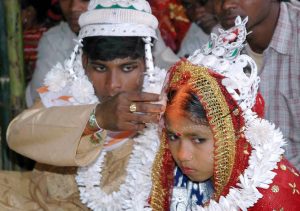Special Marriage Act 1954:

The law that governs inter-faith marriages in the country, the Special Marriage Act (SMA), 1954, is being challenged in the Supreme Court.
- In 2021, petitions were filed to strike down several of its provisions.
The Special Marriage Act (SMA), 1954
- It is the legislation made to validate and register interreligious and inter-caste marriages in India.
- It allows two individuals to solemnise their marriage through a civil contract.
- No religious formalities are needed to be carried out under the Act.
- This Act includes Hindus, Muslims, Christians, Sikhs, Jains, and Buddhists marriages.
- This Act applies not only to Indian citizens who belong to different castes and religions but also to Indian nationals who live abroad.
Current Petition:
- Section 5 of the SMA requires a person marrying under this law to give a notice of intended marriage.
- Section 6(2) says it should be affixed at a conspicuous place at the office of the marriage officer.
- Section 7(1) allows any person to object to the marriage within 30 days of the publication of the notice, failing which a marriage can be solemnised under Section 7(2).
- Due to these provisions breaching personal liberties, several inter-faith couples approached the Court, challenging Sections 6 and 7 of the Act.




